By
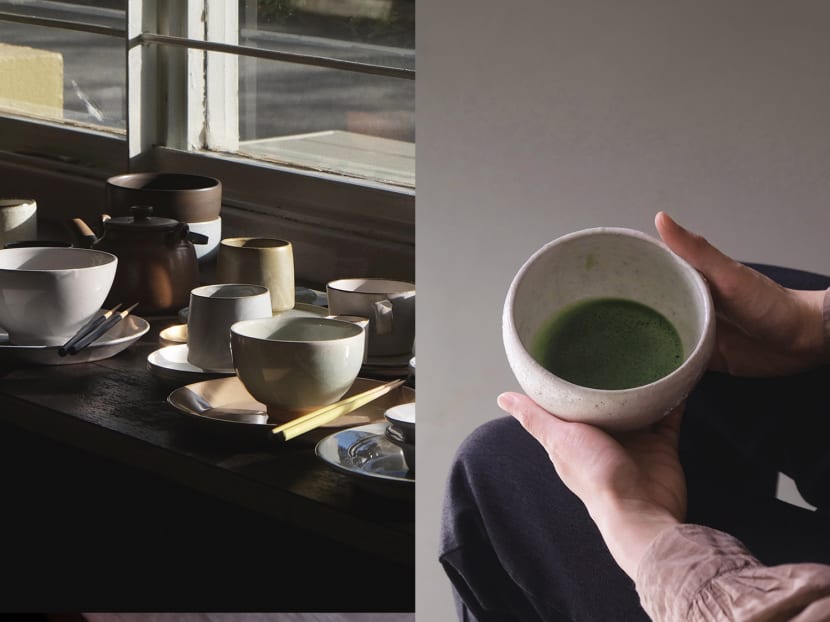
(Photos: Sarah Kee)
Have a wagashi (Japanese desserts) and some matcha while picking out ceramics at Asaru.

(Photos: Sarah Kee)
To reach Asaru Studio, one first has to ascend a narrow road to Pearl’s Hill Terrace. Like a forgotten place, matured trees shadow the pre-war building that once used to house married Sikh police offers and their families, their untamed, gnarly roots cracking up the car park tarmac. At the foyer, large smiling cartoon statues provide an uncanny welcome. The journey is lit by sun-flushed courtyards and slowed as one pauses to peer through the doors of artist studios, left open to welcome breeze and curious faces.
This unusual potpourri of encounters makes the arrival at Asaru all the more poignant. Through a door with the studio’s name subtly imprinted on it, one enters a dim, hushed world. Various curated mise en scene around the small room contrasting with the artful disorder outside settles one into an immediate state of calm.
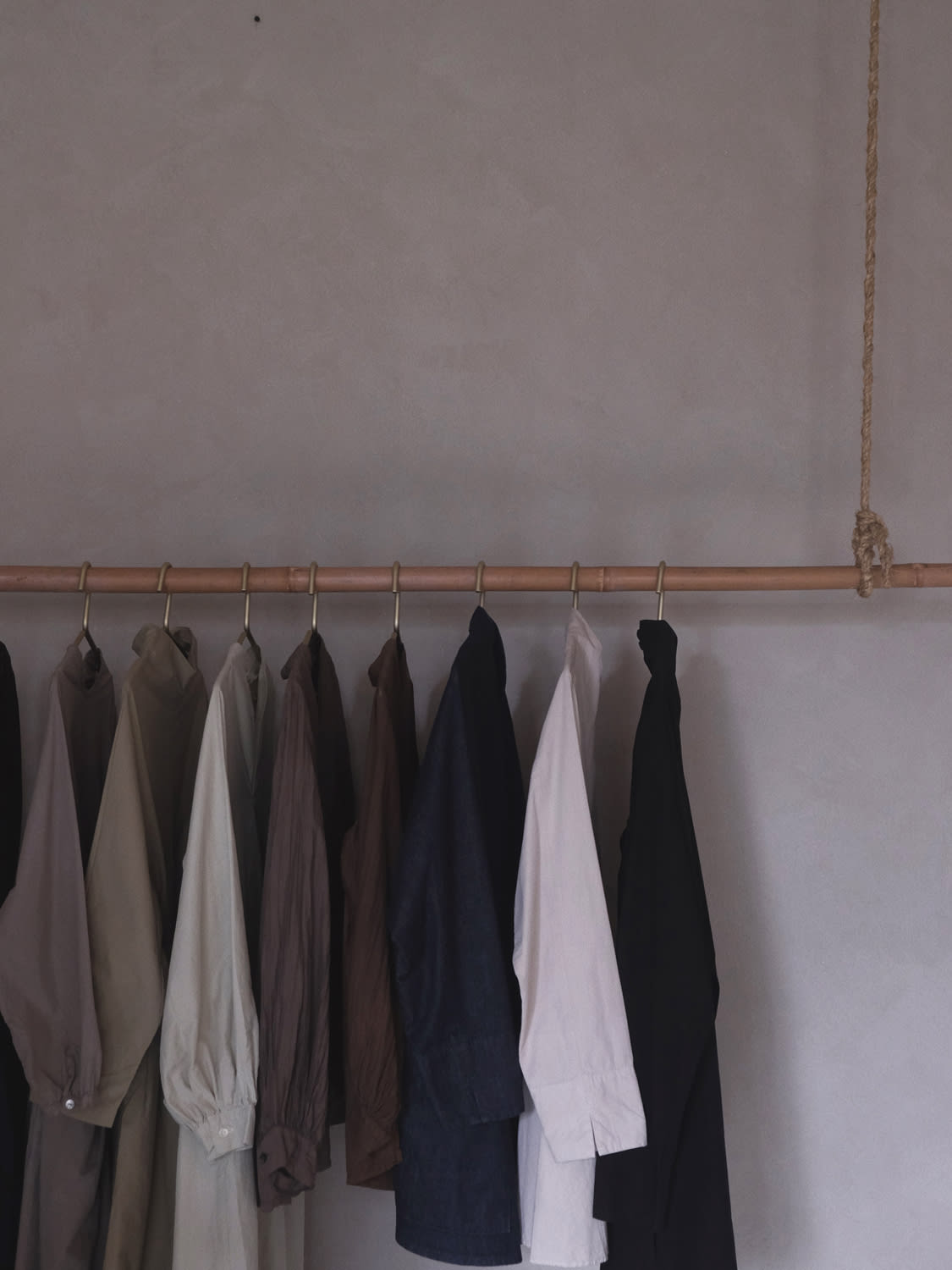
The woody, spicy scent of Apotheke incense fills the air, its smoke curling upwards in a slow dance, swaying this way and that. “Don’t stand so close to the incense,” cautioned Vincent Teng from behind the table made from chunky bricks as he spreads kinako (roasted soybean flour) over the warabi mochi he is preparing. The Japanese dessert is part of the uchi session at Asaru, which he opened with business partner Pang Hui Shan in January 2022.
“Asaru is intended as a retail experience where we host uchi or tea sessions as part of presenting and demonstrating our goods selection in use. Uchi (‘home’ in Japanese) is our way of welcoming guests into the space over simple wagashi (Japanese dessert) and drinks, allowing us a time to exchange thoughts and ideas on craft, culture, or anything in fact,” highlighted Pang, who is whisking matcha from 400-year-old Japanese tea brand Horii Shichimeien.
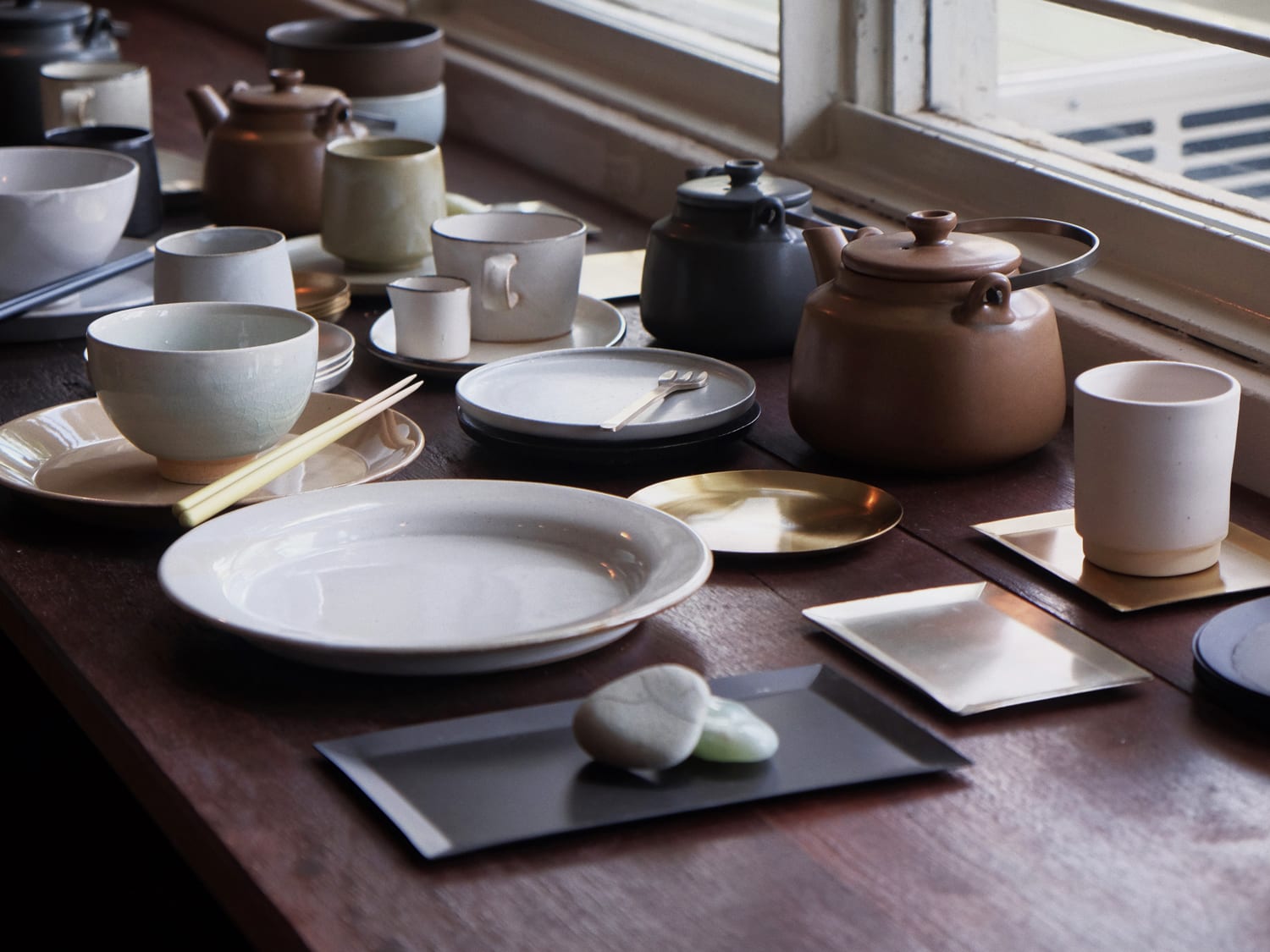
Sessions, which host up to four people each, are booked online. For S$30, guests enjoy a wagashi made fresh on the day by the pair, as well as two servings of coffee or tea as they peruse the goods ranging from clothing and jewellery to tableware.
The sessions are run by the seasons of spring, summer, autumn and winter. “Every season, the wagashi, coffee and tea changes. We try to stick closely to the seasons but it depends on how accessible the ingredients are,” said Pang. The focus is not so much on the food or drinks, Teng added. “It’s like visiting a friend’s house where you [ask about things they display] and are kept happy with food offerings along the way.”
Music from Japanese sound artist Meitei – serene and at times experimental – serenade the session. An Asaru experience involves not just sight, scent and touch, but also sound.
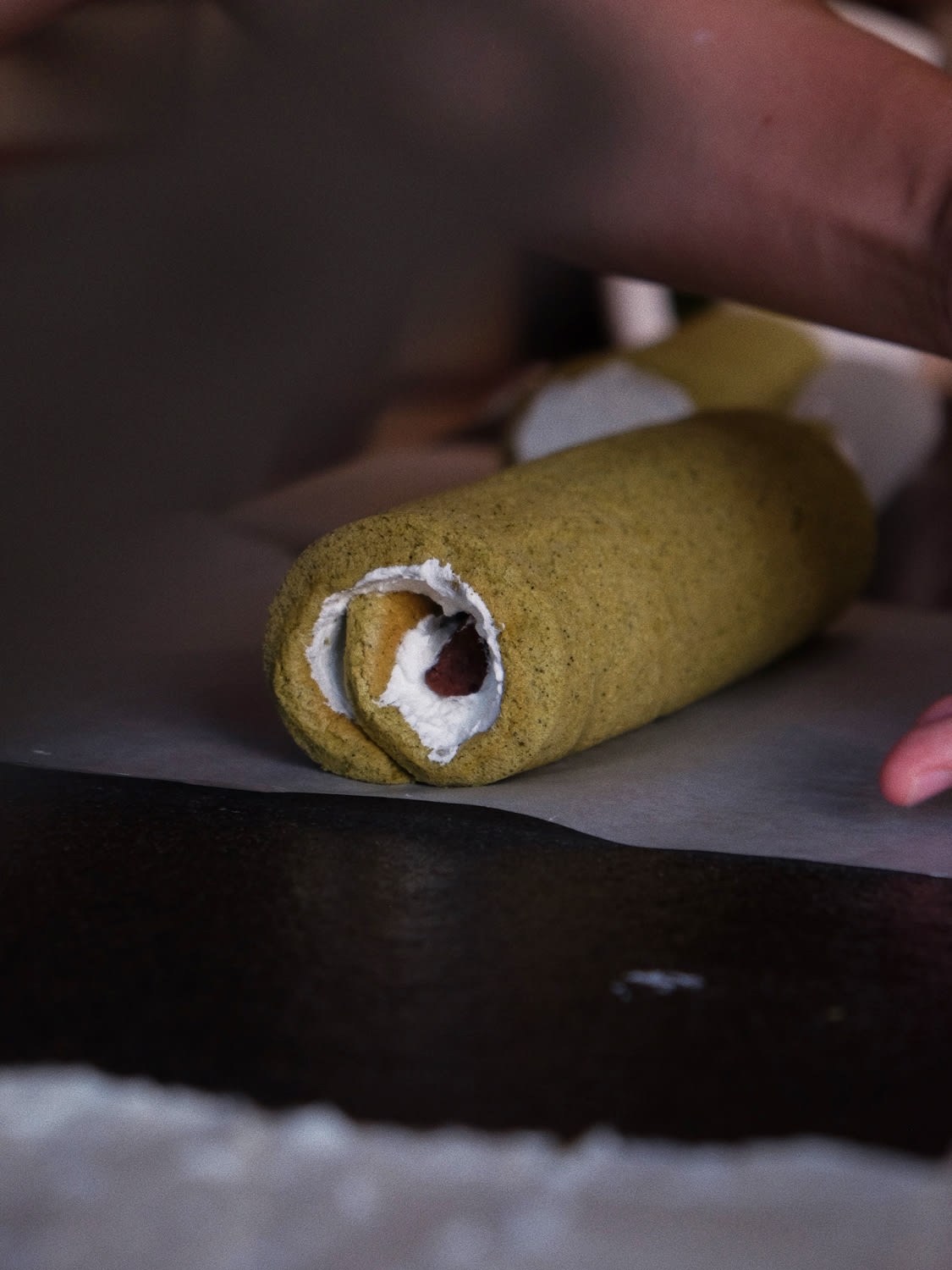
Asaru is an anomaly in Singapore’s fast-fashion, mall-focused retail scene. “Asaru means ‘forage’ in Japanese. Foraging is the main thing we do here. When customers come, they are also ‘foraging’ for items that suit their lifestyles and homes,” said Pang. It is fine even if they leave empty handed. “It’s not about making people buy more, but to be more mindful about buying,” said Teng.
He serves the warabi mochi on a flower-shaped plate from Marumitsu Poterie. “Warabi mochi is a common Japanese snack; you can even buy it from Don Don Donki. The only difference is we serve it fresh and warm so it has a different texture,” he explained. Indeed, this warabi mochi is nothing like the chewy varieties I have purchased in Singapore. It is extremely soft, melting in my mouth. The almost molten-hot warmth is comforting and leaves me wanting more. It has been boiled and stirred for four hours,” explained Teng, adding that no preservatives are used. “Guests have mentioned that they are not able to find a warm warabi mochi anywhere else in Singapore” he shared proudly.
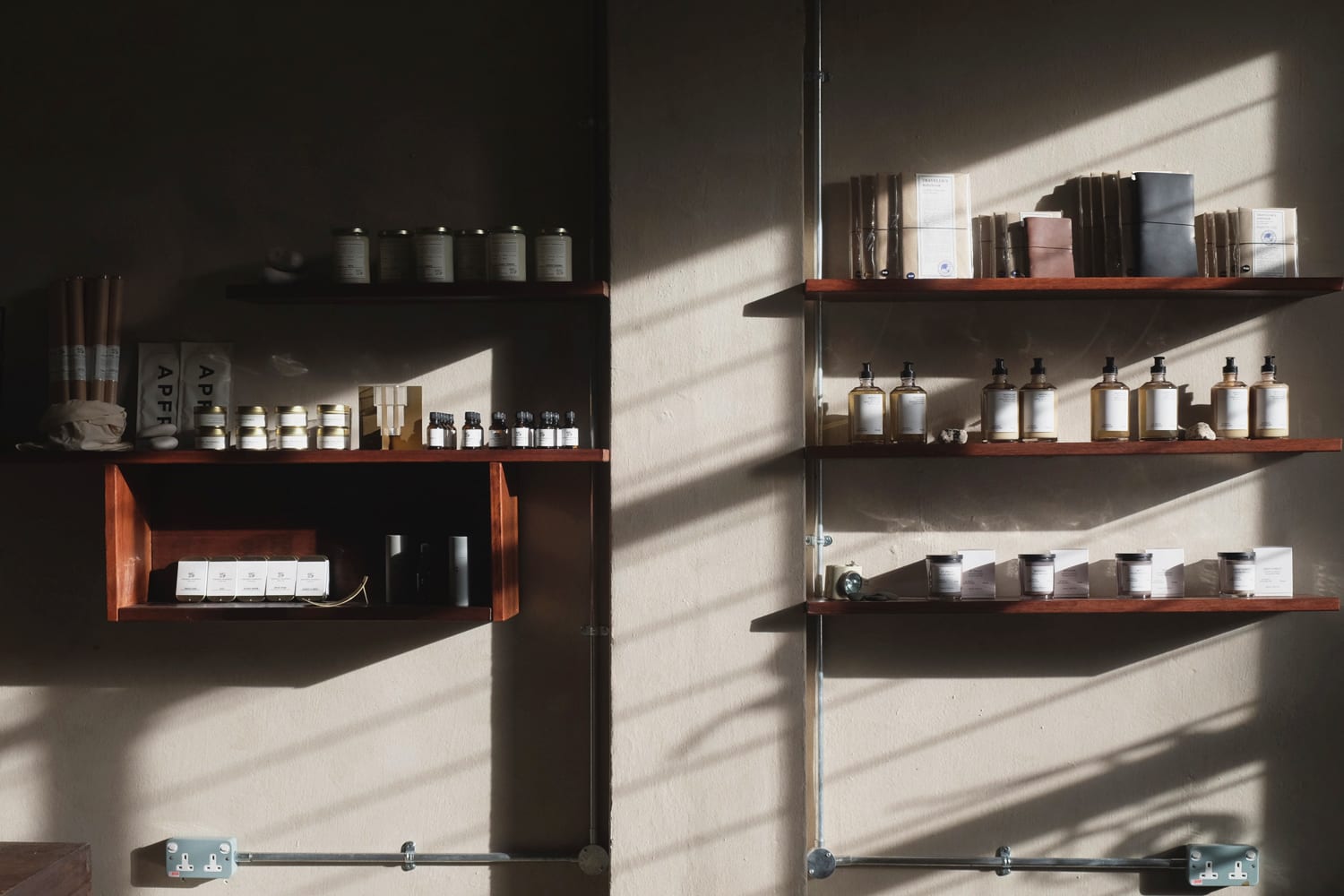
Like an art form, the dessert making is perfected over trial and error. “Every season, we offer two different wagashi. We make it through testing, checking with our Japanese friends, or from our own memories. Hopefully, we become as authentic as possible,” said Teng.
The amiable host is the brains behind beloved coffee spots such as The Plain and Ronin (now-closed), Punch at North Canal Road and Gather at Raffles Hotel that serves delicately thin crepes. His wife Laura Phay, who is architecturally trained, designed all the interiors including Asaru.
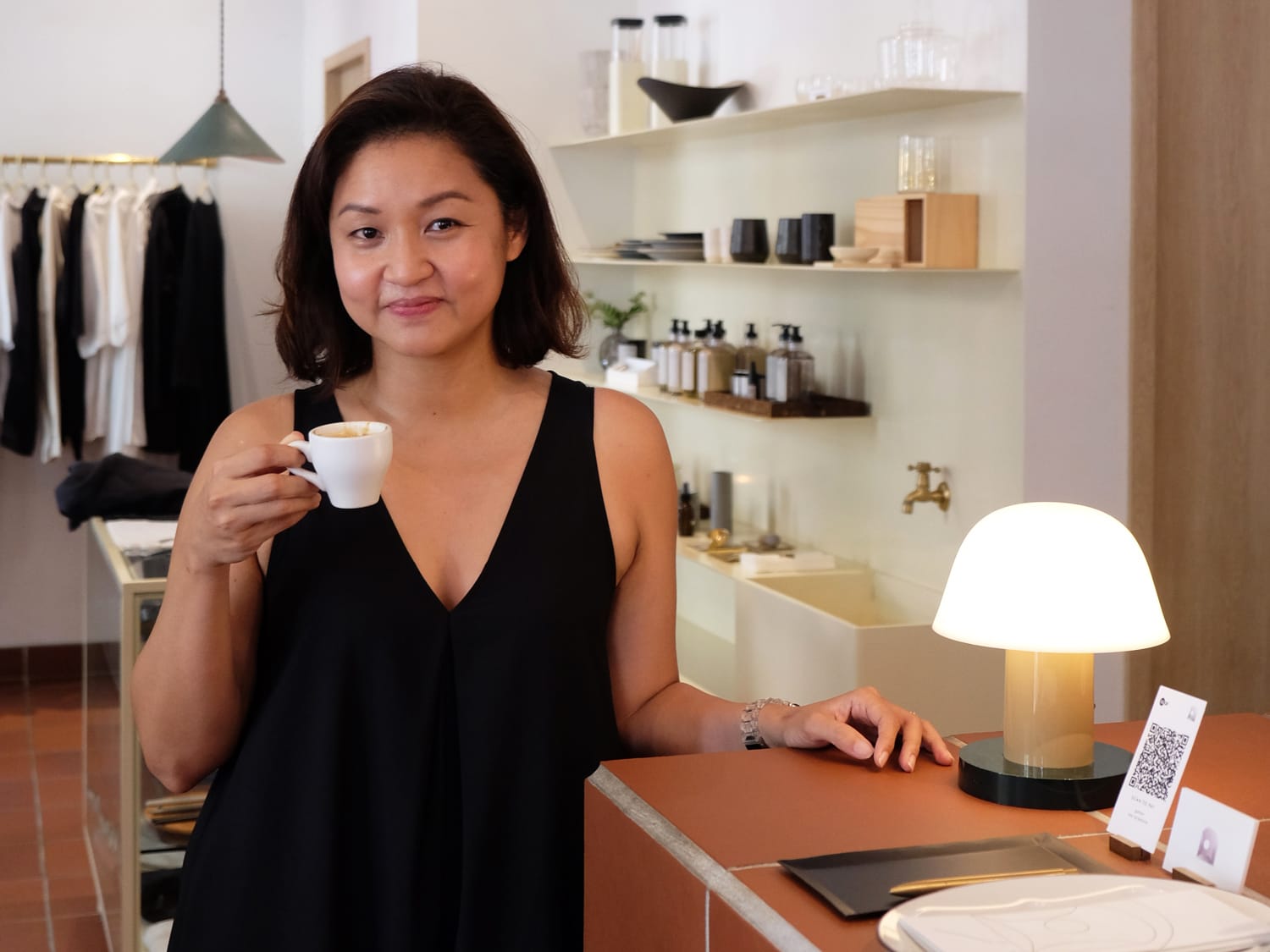
Each interior has a distinctive mood enriched by stories about the space making. For example at Asaru, the counters’ bricks were found at Punch when they first took over the shophouse and kept for seven years.
A truncated staircase made from scaffolding planks marks a corner. Sheltering a changing room below, it is a metaphor for a glimmer of hope. “This staircase is to chase a memory. In Japan, we wanted to buy something in a shop. The owner initially said ‘no more, sold out’. Then he said, ‘let me check’. We saw him walking up the staircase. Then he came back with the item and said ‘oh, last piece!’ Hence, I have always wanted this staircase leading to nowhere,” narrated Teng.
He serves the second wagashi – a matcha roll cake filled with Rishouen culinary matcha and red bean. I have it with Onibus Coffee that Pang brews. It is excellent, as an artisanal coffee should be. But once upon a time, this was not so.
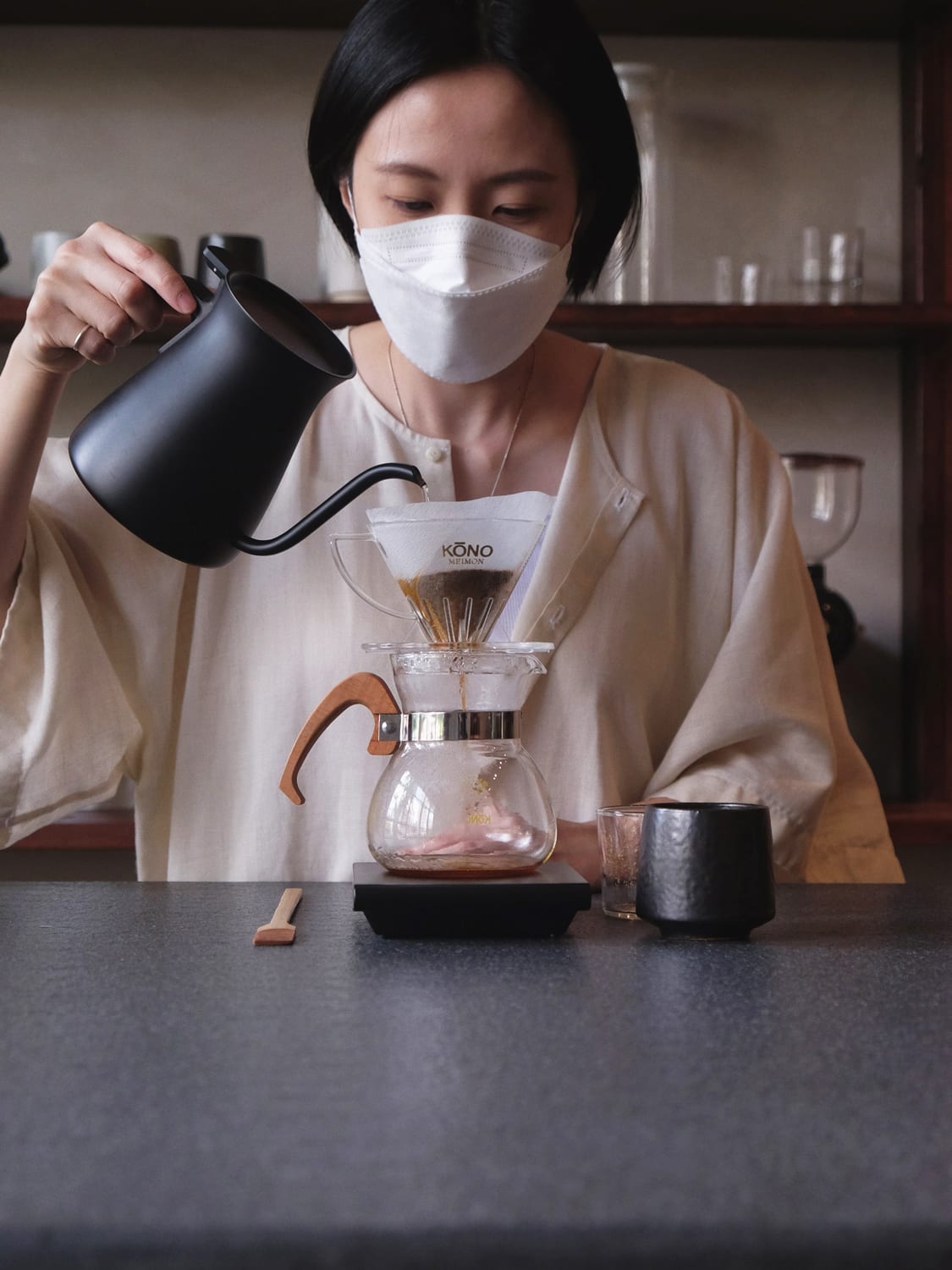
“I was a part-time floor waitress at Ronin in 2014, washing dishes and so on,” Pang shared. She left for a time to work in marketing until Teng enticed her back. “She said her dream is to have a ‘mama shop’, to sell things. I said retail is not doing well but if she paired it with a food concept, it might work,” said Teng.
Pang returned to help out at Punch at Teng’s urging, where her naturally friendly and thoughtful nature kept guests coming back. But behind the coffee machine, every other day ended in tears. She had been learning how to make coffee and could not get it right. Teng was adamant that she perfected the skill. “I wanted her to understand that eventually if her dream was to have a shop, she will need a team and if the team is not convinced she can do things well, they will leave. So I was very particular and now her coffee is better than mine,” said the mentor.
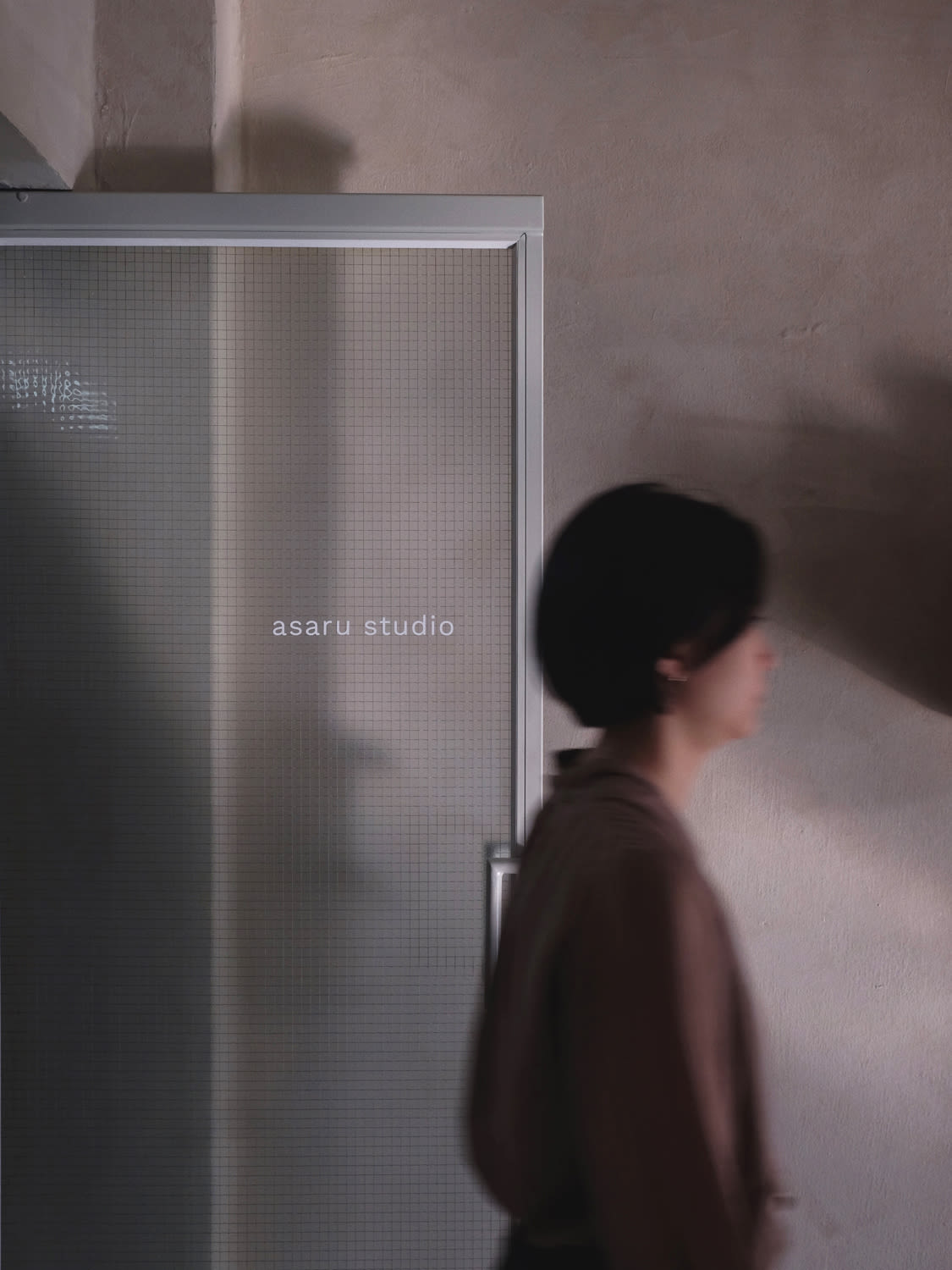
This need to build tenacity and offer nothing but the best came about from Teng’s own journey. Being a part-time Asian barista while studying in Melboune in the racism-rife noughties was tough. Teng attributes his ethos to Faye and Bill Colls of Melbourne’s coffee institutions Postal Hall and Coffee Darling. The pair took him under their wings, teaching all he needed to know about building an authentic, people-focused brand.
Eventually, Teng and Pang opened her ‘mama shop’ in the form of Gather, which had a small retail corner. However, people came more for the food. “We realised that the retail-and-F&B concept was not Gather; it was actually Asaru,” said Teng.
Teng and Phay discovered Pearl’s Hill Terrace while out walking with their daughter. “We had never seen such a place in Singapore,” he said. Pang, who visited after he told her about it, was equally enamoured and hence they started her ‘mama shop’ in the form of Asaru.
After a cafe at Pearl’s Hill Terrace closed, footfall fell. Finding this to be a pity, Teng and Pang conceived their next project. To bring more life to Pearl’s Hill Terrace, they opened Paaru cafe and bakery round the corner from Asaru in June this year. Chef Yuki Kaneda, who serves shokupan and an assortment of cakes, runs the bakery.
“Paaru is the natural extension of the Asaru experience. It came from chasing our travel memories in Japan: Machiyas in Kyoto, coffee spaces hidden in unexpected nooks, staying overnight at a conserved guesthouse at Tamba-Sasayama – that sense of discovering something that you want to keep to yourself,” described Teng.
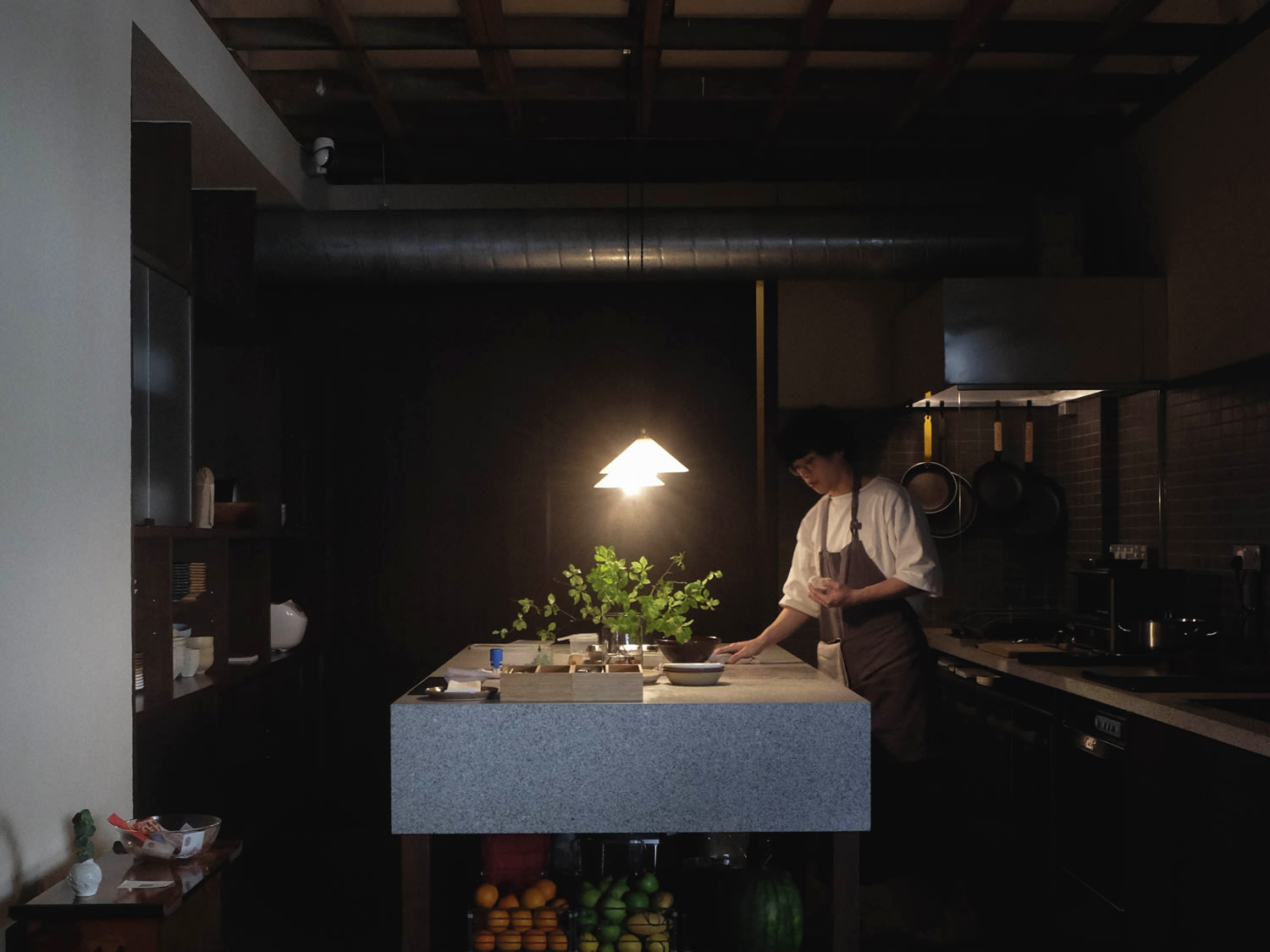
A courtyard planted with bamboo, screened timber doors, a moon-like cotton fabric lamp, a tea room, open kitchen and picture windows that frame the picturesque rocks of a retaining wall are part of the visual encounter at Paaru.
Like Asaru, it feels special and makes you want to linger – not surpsingly thanks to Teng and Pang’s omotenashi – the Japanese art of hospitality that the former describes well. “It’s more of a feeling. When you go into a Japanese establishment, you feel welcomed yet the staff is not intrusive. But when you need something, they already know.”